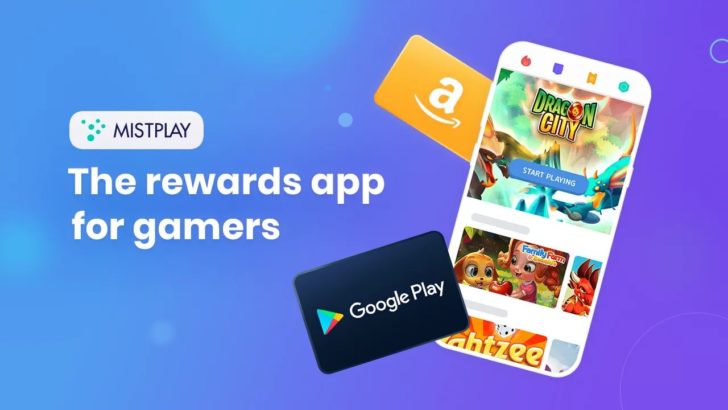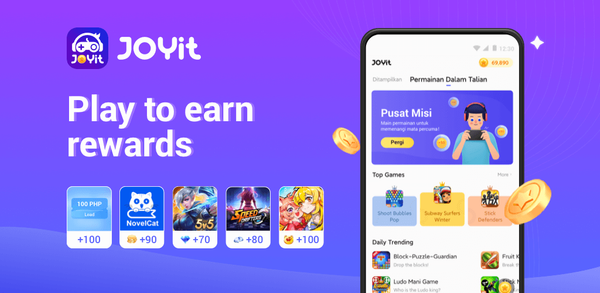Maximize your free time by learning how to play to earn rewards
Maximize your free time by learning how to play to earn rewards
Blog Article
Just How Play-to-Earn Incentives Are Transforming the Pc Gaming Experience
The advent of Play-to-Earn incentives marks a significant advancement in the video gaming landscape, moving the emphasis from mere home entertainment to authentic economic involvement. This makeover welcomes gamers to spend not just their time however likewise their financial resources, promoting a sense of possession and deeper involvement within video game environments. As varied demographics welcome these chances, new neighborhoods emerge, obscuring the lines in between leisure and investment. This transition elevates vital concerns concerning sustainability and the future of pc gaming. What effects could this have for the market and its players?

Development of Video Gaming Designs
The landscape of gaming has actually undergone a substantial improvement over the decades, advancing from standard pay-to-play models to extra cutting-edge frameworks that focus on customer interaction and money making. Games were mainly sold as standalone items, requiring ahead of time settlements for accessibility. This design, while efficient in generating income, frequently restricted gamer interaction and area building.

In recent times, the rise of blockchain innovation has introduced play-to-earn systems that fundamentally change video gaming dynamics. These designs not just give a system for gamers to gain incentives but likewise equalize the pc gaming economic situation, enabling individuals to possess in-game assets. This development shows a wider pattern in the direction of community-driven experiences, where designers and gamers collaborate fit the video gaming landscape, ultimately redefining exactly how worth is perceived in the pc gaming market.
Advantages of Play-to-Earn Systems
Unlocking brand-new methods for gamer interaction, play-to-earn systems supply a variety of advantages that basically boost the pc gaming experience. These systems empower gamers by supplying concrete rewards for their effort and time, fostering a sense of ownership and financial investment in the video game. This innate motivation drives gamers to involve more deeply, discovering game auto mechanics and neighborhoods that they might or else neglect.
Moreover, play-to-earn models equalize pc gaming by leveling the having fun area. Gamers from different histories can capitalize on their skills and creative thinking, enabling new participants to experience financial advantages that were traditionally reserved for programmers and publishers. This shift urges a much more diverse player base, enhancing the gaming community with different point of views and experiences.
In addition, play-to-earn systems advertise neighborhood structure, as players work together and compete within decentralized settings. This interaction grows social connections that boost satisfaction and retention, as players feel a sense of belonging.
Last but not least, these systems can result in increased durability for games, as constant gamer interaction commonly translates right into sustained passion and financial investment in future iterations or expansions, ensuring a dynamic gaming landscape.
Financial Influence On Gamers
Play-to-earn systems not only boost player engagement yet also have substantial economic implications for individuals involved. These platforms enable gamers to monetize their time and skills, transforming video gaming from a recreation right into a practical income resource. As players earn copyright or in-game possessions that can be traded or marketed in real-world markets, they obtain financial motivations that can significantly influence their individual economic climates.
The financial design promotes a new wave of entrepreneurship, as gamers can spend in different gaming ecological communities or establish strategies to optimize their incomes. This potential for earnings generation draws in a diverse market, consisting of those in areas with limited job chances - play to earn rewards. As a result, lots of players are currently watching gaming not just as enjoyment yet as a path to monetary empowerment.
Nonetheless, it is necessary to recognize the volatility related to cryptocurrencies and the possibility for market variations to affect profits. Gamers have to navigate these threats while stabilizing their pc gaming and economic tasks. Overall, the economic effect on players is profound, improving their relationship with video gaming and opening up methods for wide range production in a progressively digital economy.
Neighborhood Structure in P2E Gamings

Gamers in P2E atmospheres frequently create guilds or partnerships, developing networks that assist in source sharing, calculated planning, and mutual support. These teams typically participate in participating missions or competitors, even more strengthening their bonds and improving the overall gaming experience. Additionally, community-driven occasions, such as competitions and social gatherings, serve to unite players, foster sociability, and incentivize engagement.
In addition, developers proactively involve with their areas, including responses and tips that form game advancement. This joint strategy not only equips players yet additionally ensures that video find more info games develop abreast with gamer passions, boosting satisfaction and long-term involvement. Ultimately, community structure in P2E video games is not simply a feature; it is a fundamental facet that transforms the gaming landscape right into an extra inclusive and interactive setting.
Future Fads in Video Gaming
The pc gaming industry's advancement is poised to accept numerous transformative patterns that will redefine gamer engagement and experience. Among the most considerable trends is the assimilation of expert system (AI) to produce even more customized pc gaming settings. AI can examine player actions and choices, allowing programmers to tailor experiences that reverberate deeply with individual customers.
Moreover, the advent of online and enhanced reality (VR/AR) innovations is set to enhance immersion, supplying gamers the capability to connect with electronic worlds in unprecedented ways. This will not only raise gameplay however additionally foster social connections, as gamers can team up and compete in shared settings.
In addition, the surge of blockchain modern technology will certainly remain to influence the video gaming landscape, making it possible for true possession of in-game properties through non-fungible symbols (NFTs) This trend will empower players to trade and monetize their gaming experiences, even more obscuring the lines between video gaming and financial investment.
Verdict
By incorporating financial motivations into gameplay, players are significantly involved, useful site fostering a feeling of ownership and financial investment in digital environments. As these fads continue to develop, the blurred lines between amusement and investment will likely redefine the future of pc gaming, shaping new experiences for players worldwide.
Report this page